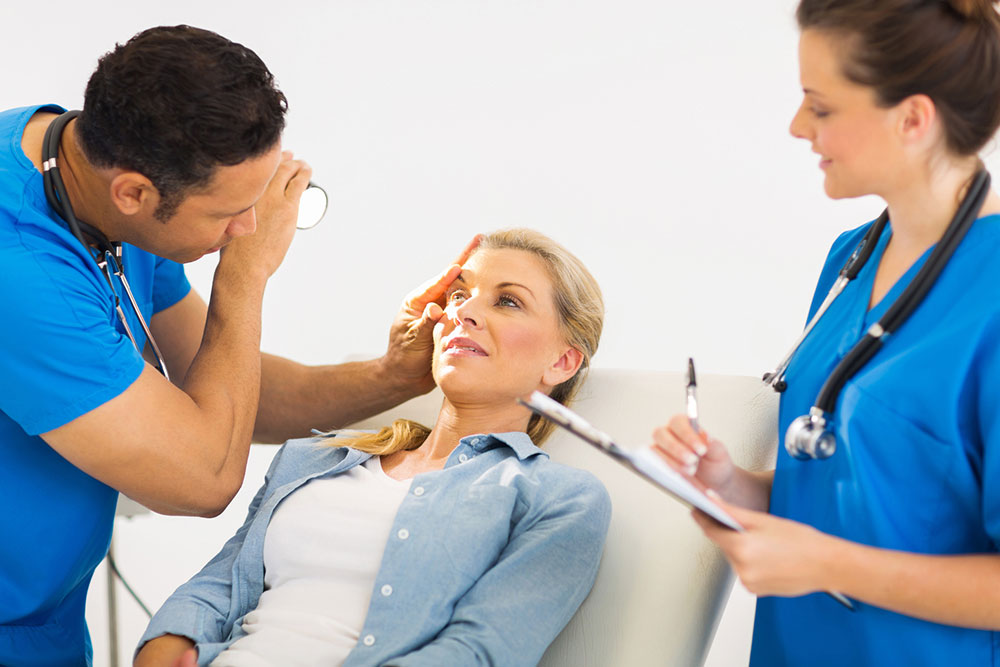
10 tips for finding the right ophthalmologist
Maintaining sound eye health is crucial in today’s fast-paced, digital world. Regular eye check-ups are vital; finding the right ophthalmologist can make all the difference. Whether dealing with specific eye issues or simply wanting to ensure the vision stays sharp, it is essential to understand when to consult an ophthalmologist and how to find the best one in the vicinity. If intrigued, continue reading till the end to learn more.
Why to consult an ophthalmologist?
Ophthalmologists are experts who specialize in eye care. They are trained to diagnose, treat, and prevent eye conditions and diseases, from common refractive errors like myopia (nearsightedness) to more severe issues like glaucoma, cataracts, and retinal disorders. Here are some reasons to consult an ophthalmologist:
- Eye infections: If you suspect an eye infection, such as conjunctivitis (pink eye) or a stye, an ophthalmologist can provide appropriate treatment, including prescriptions.
- Eye allergies: Chronic eye allergies that don’t respond to over-the-counter treatments may require specialized care and allergy testing from an ophthalmologist.
- Eye injury: Any injury to the eye, whether it’s a foreign object stuck in the eye, a chemical burn, or a traumatic injury, should be evaluated by an ophthalmologist to prevent further damage.
- Vision changes: Suppose you experience sudden or gradual changes in vision, including blurriness, double vision, or loss of vision. In that case, an ophthalmologist can diagnose the underlying cause, which could be related to eye conditions or systemic health issues.
- Eye surgery consultation: If you’re considering eye surgery, such as LASIK, for vision correction or cataract surgery, an ophthalmologist can evaluate your candidacy, explain the procedure, and perform the surgery if needed.
- Monitoring chronic eye conditions: Regular check-ups with an ophthalmologist are essential for individuals with chronic eye conditions like glaucoma or macular degeneration to monitor disease progression and adjust treatment plans as necessary.
- Contact lens fitting: If you want to wear contact lenses, an ophthalmologist can determine the right type and fit for your eyes, ensuring comfortable and clear vision.
- Family history of eye diseases: You should see an ophthalmologist regularly for early detection and prevention if you have a family history of eye diseases like glaucoma or retinal disorders.
- Diabetes management: Individuals with diabetes are at higher risk of diabetic retinopathy, which can lead to vision loss. Ophthalmologists can monitor and treat this condition.
- Pediatric eye care: Children should have their eyes examined by an ophthalmologist as part of their regular healthcare to detect and address issues like lazy eye (amblyopia) or crossed eyes (strabismus).
- Dry eye syndrome: Chronic dry eye can be uncomfortable and affect vision. Ophthalmologists can provide treatments and recommendations to alleviate symptoms.
Tips to locate the right ophthalmologist near you
Now that you understand the importance of consulting an ophthalmologist let’s explore how to find the best one for your needs.
Start with referrals
Begin your search by asking your primary care physician for recommendations. Friends, family members, and colleagues can also provide valuable insights into their experiences with local ophthalmologists.
Verify credentials
Once you have a list of potential ophthalmologists, verify their credentials. Ensure they are board-certified, indicating they have the necessary training and experience.
Research their specialties
Ophthalmologists often have areas of specialization. If you have a specific eye condition, look for an ophthalmologist who specializes in treating that condition. For general eye care, choose one with a well-rounded practice.
Check reviews
Online reviews can offer valuable information about a practitioner’s patient satisfaction and the quality of their care. Look for patterns in reviews and consider both positive and negative feedback.
Accessibility and location
Consider the ophthalmologist’s office location and hours of operation. Choosing one conveniently located and with office hours that suit your schedule can make regular check-ups more manageable.
Insurance coverage
Confirm that the ophthalmologist accepts your health insurance plan. This will help keep your out-of-pocket costs down.
Cost transparency
Inquire about the cost of common procedures and exams during your initial consultation. A transparent discussion about costs can help you plan your eye care budget.
Technology and treatment options
A reputable ophthalmologist should have access to the latest diagnostic equipment and treatment options. Also, it is advisable to get information about the technologies they use and their approach to eye care.
Personal connection
Trust your instincts. A good rapport with your ophthalmologist can enhance your overall healthcare experience. Feel free to ask questions during your consultation to gauge their communication and bedside manner.
Consultation
Schedule an initial consultation with your chosen ophthalmologist. This is an opportunity to discuss your eye health, ask questions, and assess their approach to your care.
Remember that your ophthalmologist is your partner in preserving your vision and eye health. Building a strong, ongoing relationship with them can ensure you receive the best care possible. Finding the right ophthalmologist can make a difference in your eye care journey, whether seeking a routine eye exam or treatment for a specific condition.
- Previous Post
- Next Post